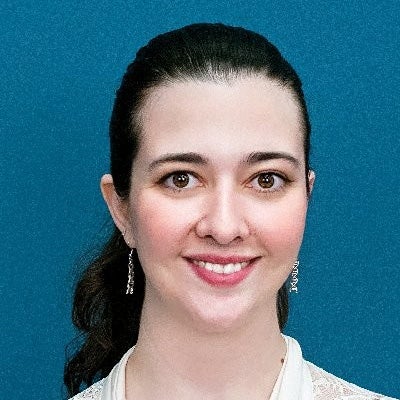More Career Advice
Learn from faculty, staff, postdocs, students and alumni through our Career Catalyst blog.
Career CatalystBy Camile Castilho Fontelles, PhD
Post-Doctoral Fellow

You’ve got an important job interview coming up! What do you wear? What do you say? All of your life experiences have prepared you for this moment, so how can you show the interviewer that you are the perfect candidate for their position?
To answer that question, Dr. Tracy Costello, Chair of the National Postdoctoral Association Board of Directors and Director of the Office of Postdoctoral Affairs at Moffitt Cancer Center, visited Georgetown to provide our students and trainees with interview tips and tricks.
Dr. Costello highlighted that the interview preparation process starts with figuring out who you are and what you want to do for a living, which, let’s face it, is the most difficult part. Being able to actually find your passion and combine that with your experience and skills requires some self-reflection. You can talk to the dedicated staff from the Biomedical Graduate Education Career Strategy & Professional Development Office to complete a Strong Interest Inventory assessment and map your skills to your interests.
Networking helps too! Yes, I said it, you have to go out there and interact with other human beings. All kidding aside, let´s demystify networking, because it is really an essential tool, through which you can build relationships with interesting people that might help you in your future, even with figuring out your career path. In fact, there is nothing more helpful than talking to people in your area of interest to understand what are the key steps to success. In that context, Dr. Costello talked about the importance of Informational interviews, especially if they are done in person. There is nothing more precious than people’s time and when you get that, be sure to use it wisely and leave a good impression. Pay for coffee, be sure to smile, be polite and professional, and please do NOT ask that person for a job. You can occasionally say that “you are currently looking for an opportunity”. A future opportunity might come up in conversation, however, it is important to enjoy the time that you have with that individual and make sure they enjoy it in return! Ask clarifying questions to try and understand where that particular career path can take you.
Once you decide what jobs you are going to apply for and are finally called to the job interview (lucky you!) be sure to pay attention to the details. First impression is key here and how you present yourself matters a lot. Starting with your clothes, it is common to wear a suit. Based on the position that you are applying for and on the company values, you’ll find that you have many style (classic or modern) and color options to choose decide from. Dr. Costello emphasized that the color you choose may send different messages, so be attentive to that. For example, don’t show up to a university interview wearing colors from the rival sports team! Instead, try and incorporate the institutional colors into your outfit. It gives them the message that you are already one of them. And if you want people to hire you, they do need to like you, so you should always be positive, be honest (don’t try to be something you are not, eventually you will have to show your true colors), punctual and polite to everybody that you talk to (you never know who can help you). It is also very important to avoid controversial topics, such as religion and politics. Also, turn your cell phone off!
During the interview it is important to establish a connection with the interviewer, therefore a firm handshake can go a long way. Dr Costello stressed that these non-verbal components of the interview accounts for 83% of what your interlocutor hears. Hence, you should pay a lot of attention to your tone, posture, facial expressions, eye contact (don’t stare too much but don’t stare at the ceiling either), and active listening.
After leaving a great first impression, it is time to answer some questions and usually interview questions aim to give the interviewer a better understanding of your background as well as how you respond in different situations.
Besides listening and answering all of the interviewer’s questions, you should also be prepared to ask some questions. I know that it might not sound very intuitive, because if you want to look prepared why would you admit you have questions? However, it is quite the opposite, asking questions shows that you came prepared and that you studied before the interview, thus showing commitment. Remember, a successful interview is a conversation, not an interrogation. If you don’t trust your own memory to remember your questions, a helpful tool is the “interview notebook”, which may contain important details about the position, the interviewer, your questions, and also a blank space for your own notes.
After the interview is done, remember to always send a thank you card or e-mail and don´t be afraid to ask about the next steps. This is also a great opportunity to ask for a second chance if you think you did not do a great job, and you know where it went wrong. Then, if everything goes well, and you are a good fit for the company, you will get the job. But don’t worry if you don’t, with every interview you will gain experience and knowledge that will help you improve on another interview. Good luck!

By Camile Castilho Fontelles, PhD
Dr. Camile Castilho Fontelles is a post-doctoral fellow at Georgetown University. She has a bachelor degree in Biological Sciences and a PhD in Sciences. Born in Brazil, she is a bookworm. Additionally she is passionate about science communication and loves to share her knowledge.
Learn from faculty, staff, postdocs, students and alumni through our Career Catalyst blog.
Career Catalyst